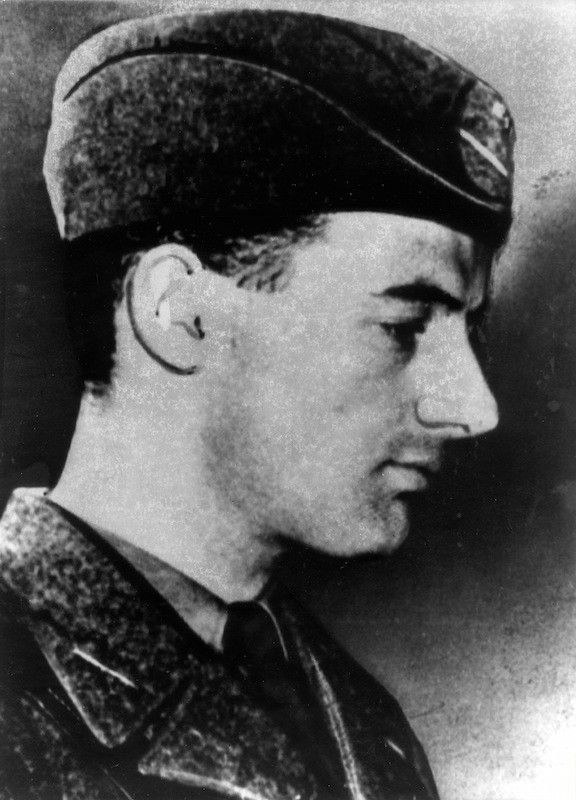
The news that the Swedish Tax Agency has officially declared that Raoul Wallenberg died on July 31, 1952, returns the Swedish diplomat to headlines decades after his disappearance. But why did it take so long to achieve this resolution on a case that began in the 1940s?
As TIME explained in 1953, Wallenberg’s fate began to trouble the world almost immediately as soon as he fell out of contact with his colleagues in 1945:
Raoul Wallenberg was a Swede with an international background. The son of a famous banking family, he had taken a degree at the University of Michigan, worked in Palestine, South Africa, and traveled extensively in the Balkans. In 1944, when the Nazi liquidation of Europe’s Jews was at its peak, President Roosevelt’s War Refugee Board asked Wallenberg to undertake a lifesaving mission to Hungary. As the third secretary of the Swedish legation, Wallenberg arrived in Budapest in a windbreaker and heavy skiing boots, carrying three knapsacks and a bedroll. He immediately set up a large office and began issuing protection passports to refugees. Working with the Swedish Red Cross, he distributed food and clothing, arranged for the evacuation of hundreds of children to Switzerland. Negotiating directly with the SS and the Hungarian authorities, he prevented the deportation of thousands of Jews. On more than one occasion he went down to the railroad station and, under the rifles of the SS, took refugees out of the boxcars. He organized an undercover group of young Jews, who raided Nazi prisons and released Jews held in custody.
In February 1945, Marshal Malinovsky’s Second Ukrainian Army liberated Budapest. A couple of NKVD officers called on Wallenberg, who told his aides: “I am going to General Malinovsky’s headquarters, whether as a guest or a prisoner I do not know yet.” Malinovsky sent a cable to Moscow: “Swedish Diplomat Wallenberg will be taken care of by army authorities.” The cable was retransmitted to Stockholm by Deputy Minister for Foreign Affairs Dekanozov. A few weeks later, Madame Kollontay, Russian Ambassador to Sweden, notified Wallenberg’s mother that her son was in good hands.
That was the last official news of Raoul Wallenberg. Eleven times the Swedish Foreign Office asked Moscow to explain, without answer. A petition addressed to Stalin, signed by 1,600,000 Swedes, went unacknowledged. In 1947 Moscow told Stockholm that Wallenberg was completely unknown to them.
In 1957, following years of disputes between Sweden and the Soviet Union over the fate of the diplomat, Soviet officials announced that he had died of a heart attack in July of 1947 and promptly been cremated, having been imprisoned by a former official who was himself dead by that point and thus could not be questioned. (The BBC reports that his new, official date of death is, in accordance with Swedish guidelines, five years after the date of the last evidence that he was alive.)
Without any physical or documentary proof of his fate, many wondered whether Wallenberg was in fact still in prison somewhere in the Soviet Union. The mystery was further exacerbated by the fact that Soviet authorities said that all of the records pertaining to Wallenberg had been destroyed, though experts asserted that such an event was unrealistic given the way that bureaucracy functioned. As late as 1981, a California congressman—who had been saved by Wallenberg’s work during his childhood—spearheaded a successful effort to make Wallenberg an honorary U.S. citizen, in hopes that such a designation would help an American effort to find out more about his whereabouts.
Get your history fix in one place: sign up for the weekly TIME History newsletter
In 2000, Russian authorities conceded that Wallenberg was likely killed, not felled by a heart attack.
Even today, though his case may get some closure from the official declaration of his death, the circumstances of his disappearance and death remain murky. What’s clear is why the world cares.
“If I can help,” Wallenberg is said to have once remarked, “if I can save a single person, I will go.”
More Must-Reads From TIME
- The 100 Most Influential People of 2024
- Coco Gauff Is Playing for Herself Now
- Scenes From Pro-Palestinian Encampments Across U.S. Universities
- 6 Compliments That Land Every Time
- If You're Dating Right Now , You're Brave: Column
- The AI That Could Heal a Divided Internet
- Fallout Is a Brilliant Model for the Future of Video Game Adaptations
- Want Weekly Recs on What to Watch, Read, and More? Sign Up for Worth Your Time
Write to Lily Rothman at lily.rothman@time.com